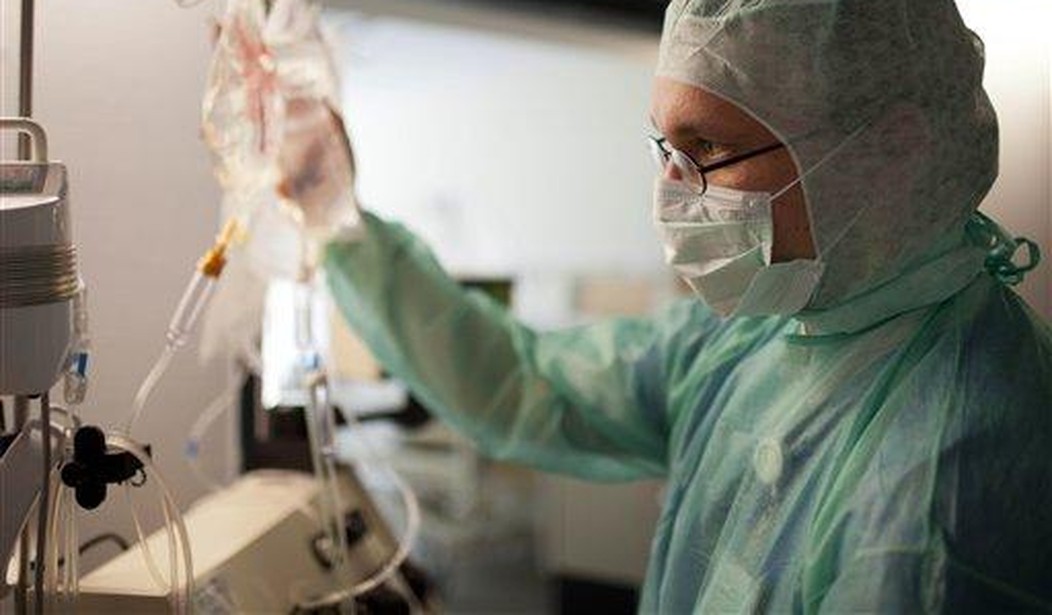Before getting to my Complaint of the Day for Thursday, I’ll start by admitting that I’m a big fan of the journal Nature. They cover a vast range of scientific subjects that I really enjoy and I’m always finding new topics in the reports they publish from a wide variety of scientists. Also, it’s rare that I ever find them putting a political spin on their reports, which is a refreshing change from most news outlets these days.
That’s why I immediately clicked on the link when their daily newsletter informed me that they had a new article on natural immunity to the SARS-CoV-2 virus acquired by patients who survive the disease. The specific subject was a recent study from the Yale School of Public Health, projecting what levels of immunity to COVID such patients could reasonably expect and how long it was likely to last. (Read the full study at The Lancet.) This is one piece of the medical puzzle that’s caused all manner of food fights as the government continues to change its policies and mandates on a seemingly weekly basis.
So, if you are one of the people who fought off COVID and developed your own antibodies, what are your prospects? I’m sad to report that, at least according to the doctors studying the subject at Yale, they really don’t seem to know. They might have an answer in the coming years, but for now, their conclusions read like a series of guesses at best. You’ll definitely come out of recovery with some level of immunity and it might last for up to two years. But at some point in that period, you’ll probably become reinfected. Unless you get vaccinated and wear masks. Or maybe you’ll be reinfected in only “a few months” either way. Here’s their introductory summary.
People who have been infected with SARS-CoV-2 can expect to become reinfected within one or two years, unless they take precautions such as getting vaccinated and wearing masks. That’s the prediction of modeling based on the genetic relationships between SARS-CoV-2 and other coronaviruses1.
The findings also warn that people could be reinfected in just a few months if they are not vaccinated. “Immunity is relatively short-lived,” says study co-author Jeffrey Townsend, a bioinformatician at the Yale School of Public Health in New Haven, Connecticut. “You should still get vaccinated even if you got infected.”
Dr. Townsend is quoted as going on to say that “further data over the coming months, and years will be necessary to know precisely how long natural immunity lasts. But we don’t want to wait for that. And we don’t have to.”
So if I’m following the doctor correctly, they were unable to decisively conclude how long your natural immunity will last or what levels it will be at. And they will need to collect more data in studies that might take years to complete before they can say for sure. But in the meantime, you should all keep getting vaccinated and wearing masks anyway, even if you’re actually quite immune already? Please pardon me for saying that I’m not finding this guidance particularly helpful so far.
I suppose I can understand these scientists wanting to err on the side of caution. If they don’t have the answer yet and immunity might be more fleeting or insufficiently robust, they seem to argue that it’s better to be safe than sorry. (Or on a ventilator.) Townsend points out that they have very solid immunity data for other coronaviruses that infect humans, such as the ones that cause the common cold. But “SARS-CoV-2 is too new for such long-term data to be available.”
One other finding of the study is less encouraging, sadly. Their initial findings suggest that your reinfection risk after surviving the disease will generally be around 5% four months after the initial infection. But the reinfection risk rises to 50% (heads or tails) at 17 months. So by the two-year mark, you’re immunity levels are just not cutting it anymore. What this news led the team to conclude was that sustained herd immunity on a global scale simply won’t be possible. Townsend said he was “surprised and daunted” to conclude that it’s a near certainty that COVID will transition from being a pandemic disease to one that is endemic.
That last link goes to a different report describing what endemic COVID would look like in the future, and the news isn’t all bad. COVID is likely to shift into a seasonal issue, much like the flu. And as more and more people acquire some level of immunity, either from surviving the disease or through annual vaccinations, it will likely only show up in pockets. We’ll still lose some people every year, much like we do with the flu, but COVID shouldn’t be overwhelming the ICU beds across the nation like it was last year. I suppose that’s better than nothing, right?








Join the conversation as a VIP Member